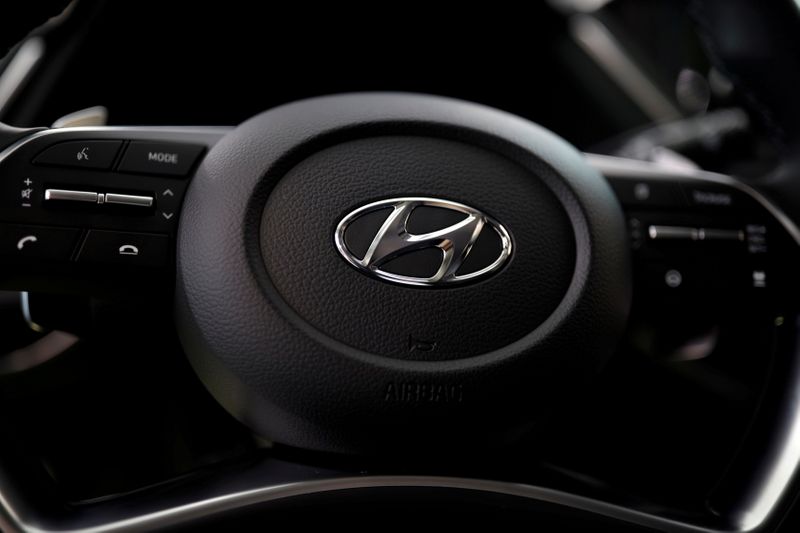By Joyce Lee
SEOUL (Reuters) – South Korea’s financial watchdog sees no grounds currently for a probe after an upswell of investor frustration online over share sales by Hyundai Motor executives in the wake of reports of a tie-up with Apple, an official said on Tuesday.
The Financial Supervisory Service (FSS) official said the regulator would need to see factual evidence of share trading based on undisclosed information to engage in an investigation. The official declined to be identified as he was not authorised to speak to media.
“At this point, it is difficult to say this is trading based on undisclosed information,” the official said.
Some retail investors expressed concern in online stock forums about the possibility of insider trading after a dozen Hyundai mid-ranking executives sold stock in the automaker on the Korea Exchange in recent weeks.
Hyundai’s stock price rose sharply after domestic media reported early in January about possible cooperation between the company and the tech giant on self-driving electric vehicles.
An FSS spokesperson said the regulator was “monitoring” the situation. The FSS does not officially confirm whether it is conducting probes into share trading.
Hyundai did not have comment on the matter when reached by Reuters. The Korea Exchange said it does not comment on individual company stocks.
On Monday, Hyundai said in a filing it was not now in talks with Apple on autonomous vehicles, just a month after it confirmed early-stage talks with the tech giant. Shares in Hyundai had jumped 21% between the initial confirmation and Monday’s announcement that the talks were off.
Since the initial domestic media report of Hyundai-Apple cooperation on Jan. 8, a total of 12 Hyundai Motor executives traded about 3,400 shares worth about 833 million won ($747,152), according to Reuters calculations based on the company’s regulatory filings.
‘PROFIT TAKING’
Analysts said sales by executives of shares in the company they work for was standard practice.
“It’s a routine procedure that company executives sell or buy their company stocks,” said Kevin Yoo, an analyst at eBEST Investment & Securities.
“The amount Hyundai Motor executives have sold after the media report is not a lot of money, and executives often sell or buy company stocks to turn them into profit.”
In the October-to-December period, before local media reports on Apple talks, various Hyundai Motor executives conducted transactions in the company’s shares worth about 580 billion won, Reuters calculations based on regulatory filings show.
Hyundai’s smaller affiliate Kia, which had been tipped in media reports as recently as last week as the likely operational partner for Apple’s car project, held an investor day event on Tuesday but made no mention of Apple.
Instead, it said it aims to boost its annual electric vehicle sales to 880,000 in 2030, a huge increase from this year’s sales target of 59,000 vehicles.
Chief Financial Officer Joo Woo Jeong said Kia’s electric vehicle business broke even in 2020. “We expect to achieve profitability in line with that of internal combustion engine cars by 2025,” Joo said during an Investor Day event.
Joo noted that Kia plans to pursue cost reductions of 19% for the next two years by standardising battery module structure and expanding procurement through competitive bids.
Hyundai Motor shares closed up 1.1%, compared to a 0.2% drop in the broader market. ($1=1,114.9 won)
(Reporting by Joyce Lee; Additional reporting by Heekyong Yang; Editing by Jack Kim and Kenneth Maxwell)





